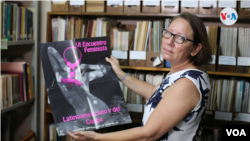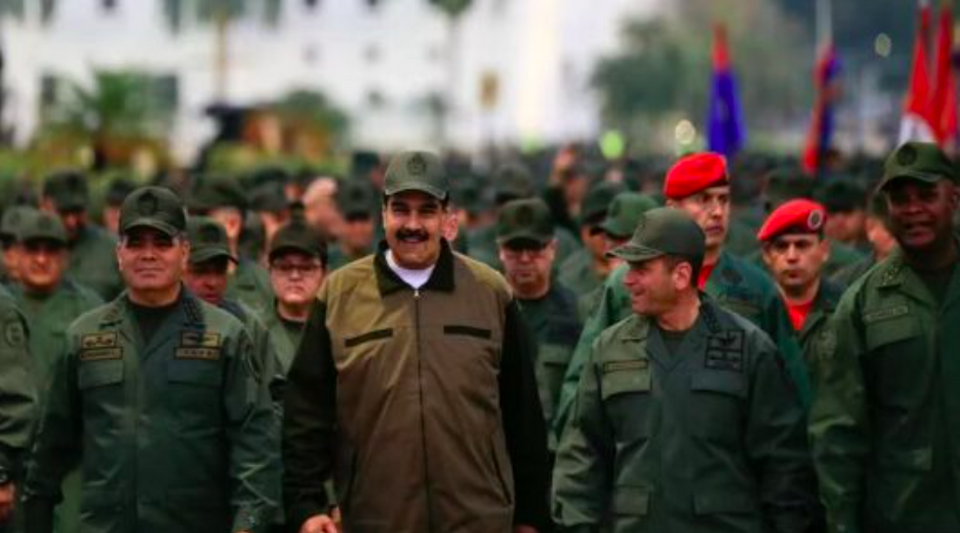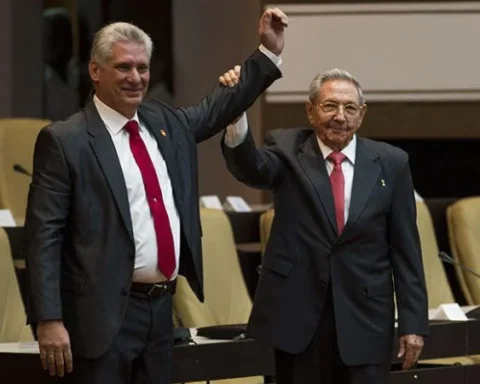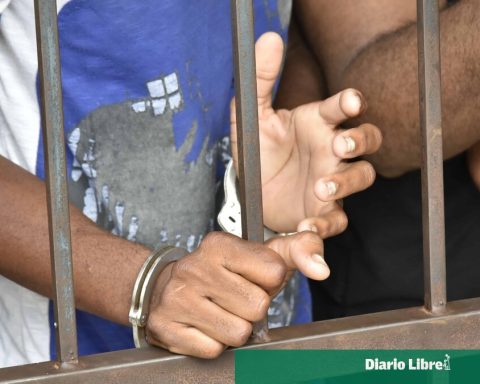Esther Damaris Martínez did not manage to reach her 30 years. Her body was found face down in some sugarcane fields in a remote town in the department of Chinandega, north of Managua.
According to local authorities, Martínez was going to be raped by two men who ambushed her. Hearing people in the area, she suffocated her. The woman had two girls.
The case of Martínez is just one of the 36 women who have been murdered in the first six months of the year in Nicaragua, according to a count by Catholics for the Right to Decide, a organization Managua-based organization that advocates for women’s rights.
The organization, which has worked as an observatory against violence for more than a decade, points out that it has been difficult to carry out this count due to the closure of spaces for civil society organizations in Nicaragua.
Due to the massive closure of NGOs, women in Nicaragua have fewer protection mechanisms against violence, and there are no prevention policies from the State either, human rights defenders point out
Since 2018, when the political crisis began, to date, the government of Daniel Ortega has canceled at least 3,000 NGOs alleging inconsistencies in their annual reports.
“It is very hard for the organizations that work with women to see how violence has increased and it is becoming more and more difficult to carry out this count,” she told the voice of america a representative of Catholics for the Right to Decide who asked not to be named for fear of reprisals.
In 2022, at least 68 women were murdered in Nicaragua, according to the organization’s count.
Increase in femicides
Teresa Blandón, a sociologist who works for the benefit of women’s rights, said that femicides in the last 10 years have been increasing, not only “in quantity, but also in cruelty,” she said in reference to the murder of Martínez.
“Among the victims are girls, adolescents and young women, but also over 60 years of age,” lamented Blandón.
According to figures from Catholics for the Right to Decide, cases of femicide in the country increased during the pandemic.
“With the pandemic, women were struggling with their homes and the organizations themselves had limitations to continue doing their work both for economic reasons and because of the pandemic,” Blandón said. “The level of vulnerability increased,” Blandón said.
The opposition member, who has been in exile in Costa Rica since the government canceled the NGO The Currentwhich he directed, indicated that the massive cancellation of civil society organizations has had an impact on femicides by eliminating the tools and aid they had to prevent them.
In La Corriente, for example, workshops against violence were offered and women were trained to identify warning factors in a relationship.
While Catholics for the Right to Decide, another closed NGO, provided assistance to the children of murdered women.
The Nicaraguan government did not respond to a request for comment from the voice of america.
According to Blandón, now women have fewer mechanisms to deal with attacks against them, and there are no prevention policies against violence from the State either.
“There are no prevention policies, in schools children and adolescents are not being educated in values of non-violence, respect, recognition of women’s rights,” he said.
“So, if there is no prevention policy, if there is no appropriate application to penalize violence against women, then effectively the result is what we have: a permanent increase in violence in all its forms and femicide as the form most extreme of that violence,” he concluded.
Controversial law against violence against women
The government of President Daniel Ortega promoted a law known as Law 779, or Comprehensive Law against Violence against Women, which came into force in 2012 as a way to fight against sexist violence but has undergone at least three reforms since then. In one of the reforms, the crime of femicide was limited to couple relationships.
When it was approved, Law 779 recognized the crime of femicide within the framework of unequal power relations between men and women, and described as femicide anyone who “kills a woman, whether in the public or private sphere.”
The law was “an important step,” he told the VOA the lawyer Karla Sequeira, from the Permanent Commission on Human Rights, nevertheless pointed out that “the effectiveness of the laws depends on their effective implementation, which in turn requires political will.”
Sequeira indicates that Law 779, despite its initial intention to protect women, “has faced several challenges, including a lack of adequate training resources for those in charge of its implementation,” as well as subsequent changes “that have weakened its focus on the protection of women”.
“It is unfortunate and evident that femicides continue to be an alarming problem in Nicaragua, which shows that the law alone has not been enough to eradicate this type of violence,” he added.
Salomé Ramírez contributed to this report from Washington
Connect with the Voice of America! Subscribe to our channel Youtube and activate notifications, or follow us on social networks: Facebook, Twitter and instagram.

















